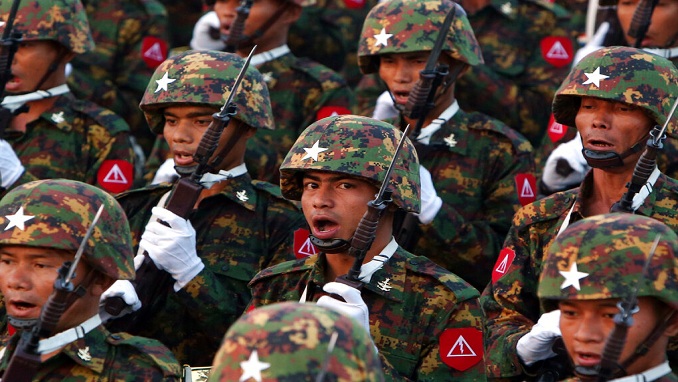“This is not a coup,” said Maj. Gen. Zaw Min Tun from a gilded hall in Myanmar’s purpose-built capital Naypyidaw, the city where his comrades recently ousted an elected government, detained the country’s leadership, and installed a military junta.
During an hour-long conversation with CNN, the military spokesperson was steadfast in upholding the junta’s official narrative: that the generals are merely “safeguarding” the country while they investigate a “fraudulent” election. The bloodshed on the streets that has killed at least 600 people is the fault of “riotous” protesters, he said.
At one point, Zaw Min Tun said if civilian leader Aung San Suu Kyi’s father, the assassinated independence hero Aung San, who founded the country’s modern military, could see the situation now, he would say: “You are such a fool, my daughter.”
CNN’s interview took place during a week-long press tour of Myanmar’s biggest city, Yangon, and Naypyidaw from March 31 to April 6. Prior to the trip, the military assured CNN it would be able to report independently and be given freedom of movement, but the journalists’ request to stay in a Yangon hotel was denied and the team instead were housed in a walled military compound, given only intermittent and heavily controlled access to the public.
Hours after commander-in-chief of Myanmar’s armed forces Gen. Min Aung Hlaing ordered his troops to seize the capital before dawn on February 1, he announced on television that a state of emergency would be in place for one year, after which elections would be held. His takeover came as newly-elected lawmakers were due to take their places on the opening day of parliament. The state of emergency caused all legislative, executive, and judicial power to be transferred to Min Aung Hlaing.
Zaw Min Tun said the state of emergency could be extended for an additional “six months or more” over “two terms” and “if the duties are not done yet.” He did not give a firm date for when elections would be held, but said that according to the 2008 military-drafted constitution, “we have to finish everything within two years. We have to hold a free and fair election within these two years.
Many observers have questioned whether the military, which ruled Myanmar for half a century between 1962 and 2011, would be willing to relinquish power again, whether elections would indeed be “free and fair” — and whether ousted leader Suu Kyi and her popular party the National League for Democracy (NLD) would be allowed to contest.
Zaw Min Tun pointed to a string of reforms the quasi-civilian government embarked upon in 2011 after the military gave up direct rule, which paved the way for the 2015 elections, in which Suu Kyi won a resounding victory. “If we didn’t want her from the beginning there would be no process like this,” he said.
However, the 2008 constitution was designed so the military would retain power despite a civilian government. It allocated the military a quarter of seats in parliament, giving it effective veto power over constitutional amendments, and the generals kept control of three powerful ministries – defense, border and home affairs.
